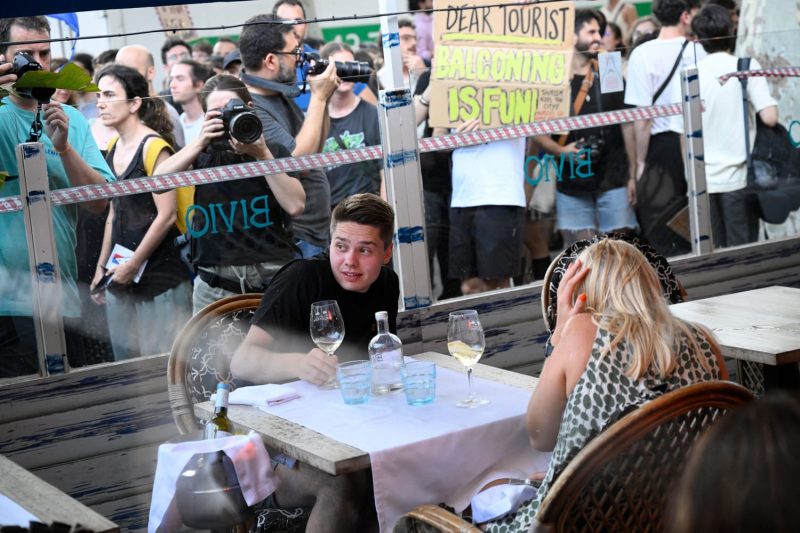Barcelona, one of Spain’s most popular tourist destinations, has been facing growing tensions between its local residents and tourists. Recent protests in the city saw demonstrators throwing various items and spraying travelers with water while chanting tourists go home. This wave of activism highlights the ongoing debate around the impact of mass tourism on local communities.
The protests, which took place in various parts of Barcelona, were fueled by the frustration of many locals who feel that the city has been overrun by tourists. The influx of visitors has led to overcrowding, increased rent prices, and a loss of the city’s authentic charm. Many residents argue that tourism is displacing them from their neighborhoods and eroding the cultural identity of Barcelona.
The issue of overtourism is not unique to Barcelona, as many other popular cities around the world grapple with similar challenges. Cities like Venice, Amsterdam, and Dubrovnik have also experienced the negative effects of mass tourism, leading to protests and calls for stricter regulations.
While tourism brings economic benefits to a city, such as job creation and revenue generation, the rapid growth of the industry can have detrimental effects if not properly managed. Sustainable tourism practices that prioritize the well-being of local residents and the preservation of cultural heritage are essential to address these issues.
Local authorities in Barcelona are under pressure to find a balance between promoting tourism and protecting the interests of the community. Measures such as capping the number of visitors, implementing tourist taxes, and promoting responsible travel behavior have been proposed as potential solutions to mitigate the impact of mass tourism.
Ultimately, the protests in Barcelona serve as a wake-up call for the tourism industry to prioritize sustainability and community engagement. Balancing the needs of locals and tourists is crucial to ensure the long-term viability of tourism destinations and to foster positive relationships between residents and visitors. Only through collaboration and understanding can cities like Barcelona create a more harmonious and sustainable tourism model for the future.






















